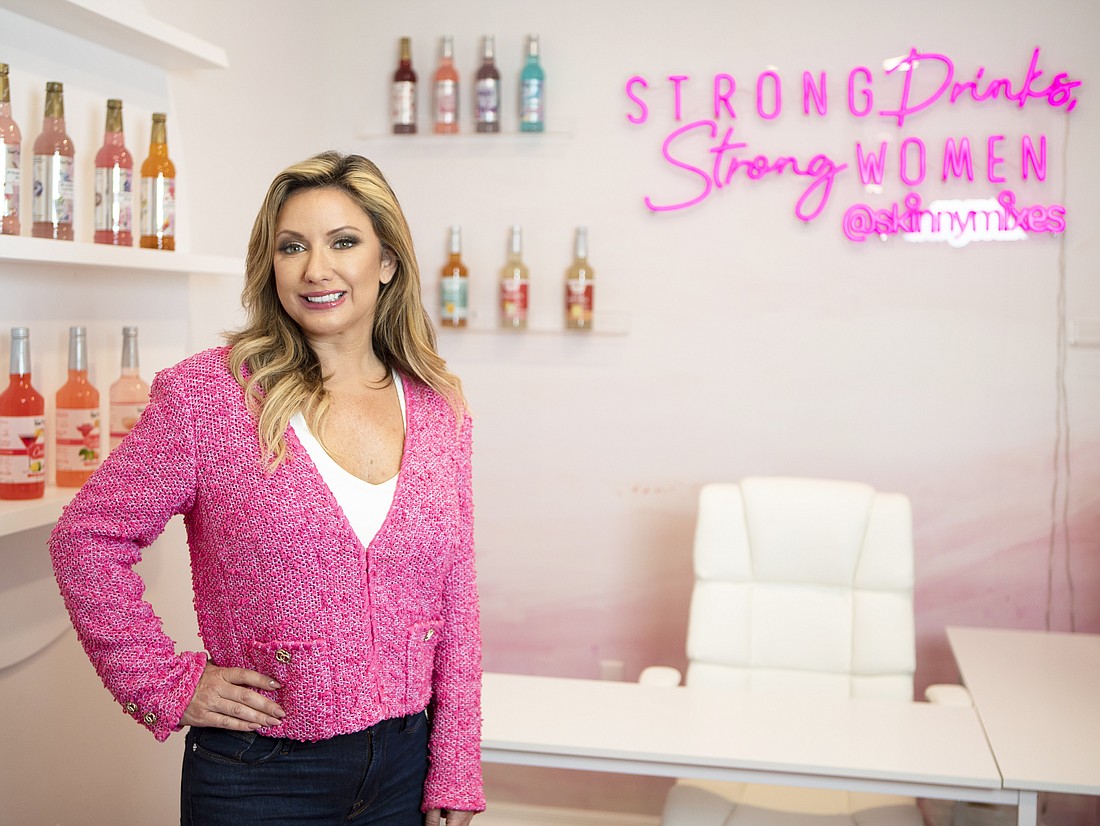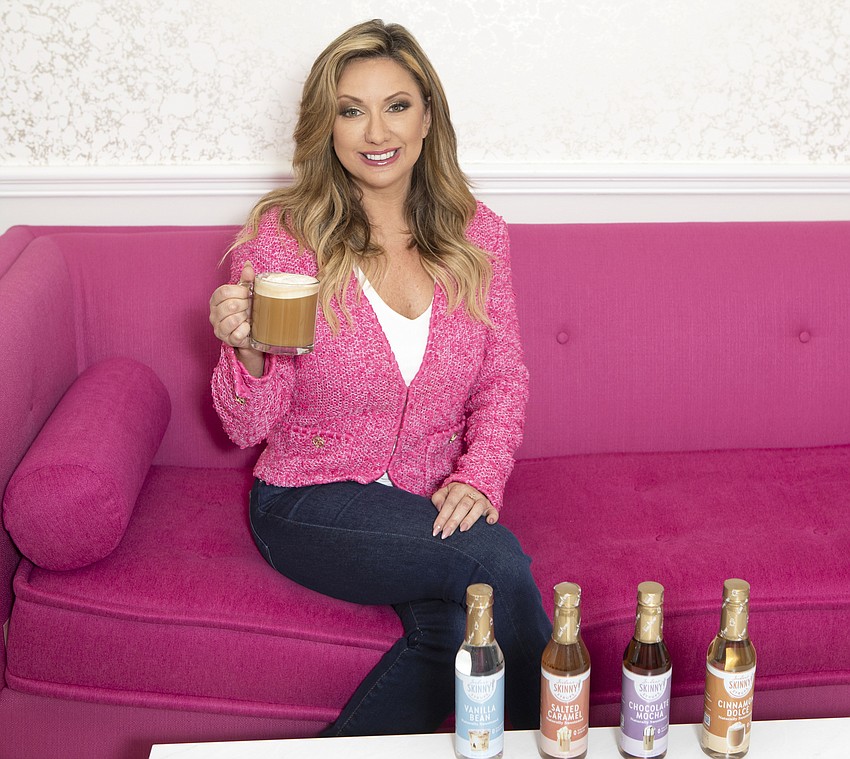- April 14, 2025
-
-
Loading

Loading

Jordan Engelhardt, the founder and president of Clearwater-based Skinny Mixes LLC, had been pursuing big retailer Target for eight years.
As a small businesswoman, she had already bagged big game.
Engelhardt, 42, started her ‘skinny syrup’ mix company in 2009, at the height of the recession, after her Clearwater-based real estate appraisal job became threatened by the market crash. She saw a need for a no-sugar syrup to make margaritas and cosmopolitans (the drink made popular in HBO's "Sex and the City"), getting the idea in 2007. In 2009, she got to work talking to people and food labs, and putting together some bottles. Her first year in business she made what she called a "baby profit.”
Through the years, she captured more and more business from liquor distributors and major retailers such as T.J. Maxx, Marshalls, Home Goods and Bed Bath & Beyond. But Target was tougher.
Engelhardt had been presenting to Target for about eight years, she says, starting circa 2014. In November, she got word from the Minnesota-based retail giant she had been approved to sell Skinny Mixes' new zero-calorie, no-sugar coffee syrup at several hundred Target stores. Engelhardt posted the news on LinkedIn, calling the agreement a "dream ... come true.”
Target was a big victory for Skinny Mixes, but Engelhardt had been accruing such scores for years. While she was reluctant to disclose profits and other specific figures, she says annual revenue in 2022 was a hefty $60 million. Skinny Mixes grew revenue 50% in 2019, 2020 and 2021, she adds.

By the end of 2022, as Skinny Mixes was showing its new offerings to Target, the brands were already in 10,000 retail units, including bars, "mom and pop" shops, Meijer, Ross and Amazon. The brand has also expanded to Canada and the United Kingdom.
One key to success has been crafting a loyal following, 90% of whom are women, and a group that often likes to give feedback on TikTok and Instagram. Getting that feedback, Engelhardt expanded the product line, from no-sugar mixes for liquor, to tasty diet syrups for use in "coffees, teas, lattes, smoothies, protein shakes, baking, oatmeal yogurt, or just about anything." The company also makes a 10-calorie keto syrup.
Growing from the recession and then slow recovery, Engelhardt could be forgiven for thinking she had navigated through the worst economic times she or Florida had seen in decades. She was even seeing competitors pop up, which she says made her unique industry healthier.
But then came another black swan event — COVID-19. There was soon realization millions of Americans would be laid off, and that would mean disposable income could evaporate across many demographics. By then, half of revenue for Skinny Mixes came from retail outlets, while the other half came from the company's website. "That was really frightening for us," Engelhardt says. "Half of our revenue. The stores shut down.”
By now, Engelhardt had more than 20 employees, plus subcontractors. She gathered with seven of them in March 2020 — as many U.S. businesses were hastily issuing "work from home" directives — and agreed to wider marketing online. As 2020 wore on, and many at-home U.S. consumers caused an unprecedented surge in e-commerce, 80% of Skinny Mixes orders came from new customers, stabilizing the company. Engelhardt credits that initial strategy meeting and the resulting plan of action. "I'm glad we were able to be risk takers," says Engelhardt.
E-commerce and online marketing were a familiar gamble on an established idea.
Engelhardt started thinking about a sugar-free mix in 2007. In 2009, as the recession lingered, and her appraisals dried up, she and her husband, a high school teacher, made their decision. Her background was not food sales, business or science: Engelhardt was a history major at Florida State University. But Engelhardt says she knew how to make calls and meet people to formulate a plan. She decided on bottles costing $7.99 or $9.99 per unit.
Engelhardt needed capital, so she borrowed $5,000 from her mother. Later, she borrowed $80,000 from her brother. In 2010, she netted $88,000 in sales, enough to pay him back and keep the syrup flowing.
It was just Engelhardt in those first years, as she met with food labs and distributors. In 2013, business kept growing and logistics was a demand. She hired an office manager. Then came as many 15 people over the years. (Not including two additions: she and her husband welcomed two children, now five years old and eight years old.)
Cocktail mix was the big part of the initial success, but Engelhardt saw demand for coffee mixes rise. Keeping an eye on the market and executing more innovation is the company's long-term plan, she says, adding she wants "to make Skinny Mixes a household name."